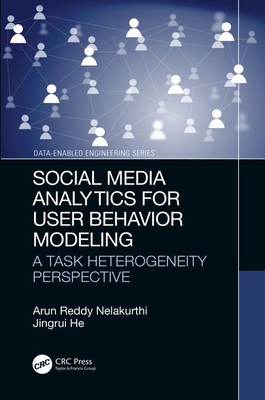Unified Objects: Object-oriented Programming Using C++
暫譯: 統一物件:使用 C++ 的物件導向程式設計
Babak Sadr
- 出版商: Wiley
- 出版日期: 1997-11-10
- 售價: $3,400
- 貴賓價: 9.5 折 $3,230
- 語言: 英文
- 頁數: 457
- 裝訂: Paperback
- ISBN: 0818677333
- ISBN-13: 9780818677335
-
相關分類:
C++ 程式語言、Object-oriented
海外代購書籍(需單獨結帳)
商品描述
Description:
This book creates a balance between OOP and C++ in its coverage of the design and implementation of these approaches. It provides formal definitions for object-oriented concepts and describes how they relate to features in C++. The book uses graphical presentations to amplify the concepts featured in the text. The text uses an object-oriented notation that conveys the design of a system in clear and standard manner. This book primarily uses Booch-93 notation. It also provides an overview of the Unified Modeling Language (UML) which combines the Object Modeling Technique and Booch notations. The UML was developed by James Rumbaugh, Ivar Jacobsen, and Grady Booch at Rational Software Corporation. The presentation of Booch-93 and the UML allows you to select the notation that is most appropriate for your design.
This book provides you with an overview of object-oriented design, object-oriented programming, and correlates the features in C++ to the framework of an object model. To better enable you to build a solid foundation of the language, the text relates encapsulation, abstraction, modularity, and design hierarchies from the object model to C++ features. In addition, it introduces you to advanced topics such as distributed objects, including concurrency and persistence issues. The book is accompanied by a disk that contains the examples in the text.
Table of Contents:
List of Figures and Tables.
Foreword.
Prologue.
Preface.
1. Object-Oriented Design.
2. Object Model Development.
3. Object-Oriented Programming and C++.
4. Basics of C++
5. Class.
6. Functions.
7. Dynamic Memory Allocation.
8. Error Detection and Recovery.
9. Inheritance.
10. Polymorphism.
11. Templates.
12. Distributed Objects.
13. Introduction to Java.
14. Unified Modeling Language.
References.
商品描述(中文翻譯)
**書籍描述:**
本書在物件導向程式設計(OOP)與 C++ 之間取得平衡,涵蓋這些方法的設計與實作。它提供了物件導向概念的正式定義,並描述這些概念如何與 C++ 的特性相關聯。書中使用圖形化的呈現方式來強化文本中的概念。文本使用物件導向的符號,清晰且標準地傳達系統的設計。本書主要使用 Booch-93 符號,並提供統一建模語言(UML)的概述,該語言結合了物件建模技術和 Booch 符號。UML 由 Rational Software Corporation 的 James Rumbaugh、Ivar Jacobsen 和 Grady Booch 開發。Booch-93 和 UML 的呈現使您能夠選擇最適合您設計的符號。
本書為您提供物件導向設計、物件導向程式設計的概述,並將 C++ 的特性與物件模型的框架相關聯。為了幫助您建立語言的堅實基礎,文本將封裝、抽象、模組化和設計層次從物件模型與 C++ 特性相連結。此外,它還介紹了分散式物件等進階主題,包括併發和持久性問題。本書附有一張磁碟,裡面包含文本中的範例。
**目錄:**
圖表與表格清單。
前言。
序言。
導言。
1. 物件導向設計。
2. 物件模型開發。
3. 物件導向程式設計與 C++。
4. C++ 基礎。
5. 類別。
6. 函數。
7. 動態記憶體分配。
8. 錯誤檢測與恢復。
9. 繼承。
10. 多型。
11. 模板。
12. 分散式物件。
13. Java 介紹。
14. 統一建模語言。
參考文獻。












